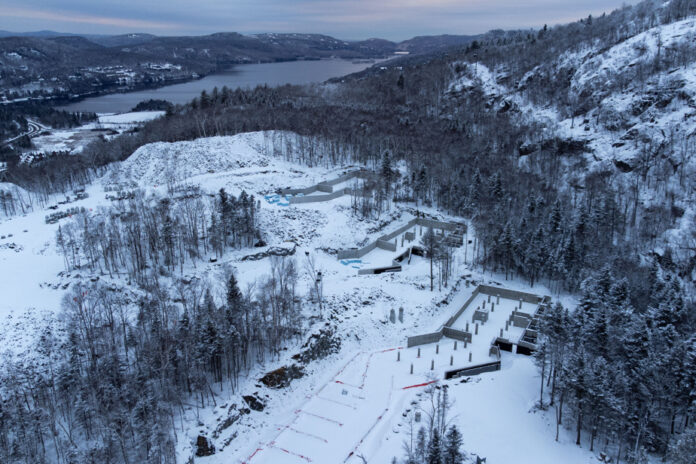Economic slowdown, soaring construction costs and higher financing bills, the winter promises to be harsh for the brick and mortar industry. Even the most prominent promoters are not spared. The Brivia Group is an example.
The company is struggling to complete its construction financing for its Versant Soleil project in Mont-Tremblant. This delay led to a cascade of bad news, such as layoffs, in addition to irritating a lender. But the management of Brivia wants to be reassuring.
The developer behind the 61-story condo tower at 1 Square Phillips in downtown Montreal says he is working tirelessly to finalize the financing required to launch construction of the first 82 units of his vast property at Versant Soleil in Mont-Tremblant , explains to La Presse Vincent Kou, head of investments and development of the Brivia Group.
In the meantime, the Tremblant project has been put on hold, subcontractors are not being paid and one of its lenders, Institutional Mortgage Capital (IMC), filed a 60-day notice in early December to exercise its mortgage recourse.
“There were suppliers, because of the delay, who decided to deposit certain legal hypothecs on our property,” says Mr. Kou. It is this situation which means that we are at fault with IMC. »
“The project has fallen far behind schedule because a portion of funding is missing,” he continues. Financing is taking longer to come into place due to the slowdown in the industry. »
The funding to be found, of more than 40 million, will be used to pay suppliers, reimburse IMC and begin construction in earnest.
According to our information, suppliers left the site because they had difficulty getting paid. Other entrepreneurs in the region are hesitant to do business with the developer because of the long delays before getting paid.
The Press was able to speak with two of them. They still have hope of receiving their money. “Channels of communication are open with Brivia,” confirmed one, who insisted not to be named, not wanting to harm his business.
According to Mr. Kou, his company has met its pre-sale criteria of 70% of the 82 units in Tremblant to begin construction. There have been virtually no canceled reservations since. “We took a very transparent approach with our buyers by informing them of the delay. Our commitment to the project is really firm,” he says.
The manager mentions that Brivia has invested a fair amount of money in opening the road and other infrastructure required for the first two phases of the project.
In 2022, Brivia acquired 140,000 square meters (1.5 million square feet) of land from the Station with a view to building 520 homes in six phases over several years. The lots are located north of the Chemin des Pléiades roundabout, west of the Loto-Québec casino property.
Brivia laid off a quarter of its 80-person workforce in Canada in November. In Montreal, where its main office is located, 18 employees lost their jobs.
The Brivia Group has been one of the most prominent developers in Montreal in recent years with the construction of large-scale projects such as YUL and QuinzeCent, on René-Lévesque Boulevard West, near the Bell Centre. In addition to 1 Square Phillips, Brivia is continuing the construction of Mansfield, neighboring the Sun Life building. Brivia also acquired land in Griffintown and Pierrefonds.
What happens to its projects in the current context? he was asked. “1 Square Phillips, phases 1 and 2, the Mansfield, the QuinzeCent, these are projects under construction with the financing in place. The projects are progressing according to schedule. The market is slow in terms of sales. Financially, these projects are solid and will continue. »
Ipso Facto is Brivia’s financial partner for 1 Square Phillips, while BMO leads the banking syndicate for Mansfield.
Vincent Kou also emphasizes that the deposits of buyers of off-plan units are very well protected by the very strict rules in place in Quebec.
To resolve its financing issues, Brivia cannot turn to its Chinese partner Gansu Tianqing Group Real Estate, whose Canadian subsidiary participated in YUL, QuinzeCent and Mansfield. The communist government has banned domestic developers from investing new sums abroad since 2017.
Rightly so: Many of China’s real estate developers, who have fueled economic activity in that country, are in turmoil as the economy slows. According to an article in the Financial Times published on October 23, more than half of the 50 largest promoters in the Middle Kingdom were in default.















